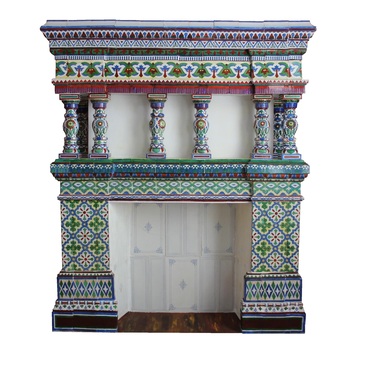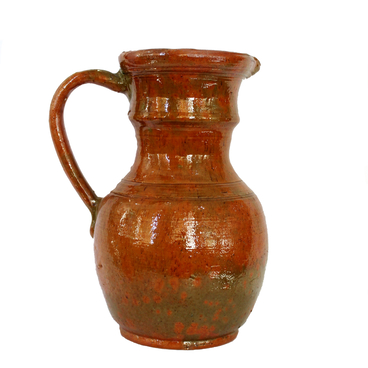Prince Ivan Baryatinsky (1767–1825) was the son of Lieutenant General Count Ivan Baryatinsky and Catherine Holstein-Beck. He was a privy councilor, a major landowner, and then founder of the Maryino estate outside Rylsk. Back in his time, he was also known as an Anglomaniac and an agronomist from the Baryatinsky family.
In 1780, he joined the military as a lieutenant in the Yekaterinoslav Hussar Regiment, where he was appointed adjutant to Field Marshal Prince Grigory Potemkin. In 1790, he was promoted to chamber cadet, transferred to the Semyonovsky Leib-Guards Regiment. Four years later, he volunteered for the Polish army and took part in the assault on and capture of Prague with Suvorov’s troops, for which he received the 4th-class Order of St. George.
When Emperor Paul came to power, Ivan Baryatinsky was removed from the court following a bitter confrontation with Count Fyodor Rostopchin. In 1801, Emperor Alexander I granted Baryatinsky the title of chamberlain. In the same year, the prince joined the State College of Foreign Affairs and was assigned to the Russian mission in London. While serving under Count Semyon Vorontsov, Ivan Baryatinsky married Mary Detton, the daughter of Lord Sherborne, but his wife soon died.
In 1804, Prince Baryatinsky was given the rank of Privy Councilor; in 1808, he was appointed Ambassador Extraordinary and Plenipotentiary Minister in Munich; in 1812, he was recalled to Russia. Shortly afterward, he left the civil service, retired to his wealthy estate, and married the German Countess Maria Keller, with whom he lived until his death and had seven children: four sons and three daughters. Baryatinsky had a luxurious palace built in his beloved village of Ivanovskoye, which he named the “Maryino” estate, in honor of his wife.
In Kursk and Kharkiv governorates, Baryatinsky owned 21,000 serfs and ultimately devoted himself to farming. The former manager of his estates, Vasily Insarsky, wrote in his memoirs that the prince introduced an exemplary system of business management in his estates, applying a slew of agricultural improvements and agronomic knowledge that he had acquired abroad. He also organized a series of successful swamp drainage projects for which he later was presented with several medals by agronomic societies.
In 1780, he joined the military as a lieutenant in the Yekaterinoslav Hussar Regiment, where he was appointed adjutant to Field Marshal Prince Grigory Potemkin. In 1790, he was promoted to chamber cadet, transferred to the Semyonovsky Leib-Guards Regiment. Four years later, he volunteered for the Polish army and took part in the assault on and capture of Prague with Suvorov’s troops, for which he received the 4th-class Order of St. George.
When Emperor Paul came to power, Ivan Baryatinsky was removed from the court following a bitter confrontation with Count Fyodor Rostopchin. In 1801, Emperor Alexander I granted Baryatinsky the title of chamberlain. In the same year, the prince joined the State College of Foreign Affairs and was assigned to the Russian mission in London. While serving under Count Semyon Vorontsov, Ivan Baryatinsky married Mary Detton, the daughter of Lord Sherborne, but his wife soon died.
In 1804, Prince Baryatinsky was given the rank of Privy Councilor; in 1808, he was appointed Ambassador Extraordinary and Plenipotentiary Minister in Munich; in 1812, he was recalled to Russia. Shortly afterward, he left the civil service, retired to his wealthy estate, and married the German Countess Maria Keller, with whom he lived until his death and had seven children: four sons and three daughters. Baryatinsky had a luxurious palace built in his beloved village of Ivanovskoye, which he named the “Maryino” estate, in honor of his wife.
In Kursk and Kharkiv governorates, Baryatinsky owned 21,000 serfs and ultimately devoted himself to farming. The former manager of his estates, Vasily Insarsky, wrote in his memoirs that the prince introduced an exemplary system of business management in his estates, applying a slew of agricultural improvements and agronomic knowledge that he had acquired abroad. He also organized a series of successful swamp drainage projects for which he later was presented with several medals by agronomic societies.

